The growth and success of a business depend on focusing on your core competencies while paying attention to the management of your accounts and overall finances and track of your income and expenses. Choosing the right accounting software could be the difference between easily managing your finances and manually keeping track of all expenses.
Here are a few mistakes that most businesses make when it comes to choosing accounting software.
1. Not Determining Needs
Most enterprises invest in accounting software without understanding the exact reason or your unique need for purchasing such a system. Finding the right software requires you to understand the reason for investing in an accounting system.
Your prime reason for making such a purchase is to keep track of your finances. Do you plan to track payroll taxes? Or are you simply looking to track the income and profit generated from sales? If you know what exactly you want to do with the software, you can compare the options and shortlist the right product.
2. Not Reviewing Processes
There are many important considerations to make before buying an accounting solution, ignoring which could result in problems later. Sometimes process improvement is required from an organizational perspective, while other times process change will result from utilizing improved functionality. Get the teams together to find out how process improvements can be made.
3. Not involving the right people
When it comes to choosing accounting software, not involving the right people could be a big mistake. Your accounting software generates information for the entire organization. Thus it is important to involve the right people in choosing the best software, rather than delegating the task to a single department.
Participation across functional groups, such as system users, system managers, system customers, and representatives from information systems, will help you select the best possible financial software solution.
4. Not Reviewing Challenges
What are the challenges facing your accounting department today? Is your organization suffering from inaccuracies in accounting? Some businesses simply jump into choosing an accounting solution without assessing the challenges faced by their accounting team. Make an assessment of which manual tasks will benefit from automation. Make sure the accounting software is flexible enough to adjust to your business needs.
5. Not Evaluating Application Performance
Most businesses do not review specific software applications before making a buying decision. Since there are substantial differences in the functioning of different programs, it is crucial to understand the functioning of the software and its benefits to your accounting functions. Consider different factors, such as ease of use, components, functionality, and multicurrency conversion options, while choosing accounting software.
6. Not Checking the System for Flexibility
When choosing an accounting system, it is important to determine whether it is flexible as far as information sharing is concerned. Find how easy it is to fax, email, or export any report. You might also want to test how hard or easy it is to use different tools, such as MS Query, in order to extract data out of your accounting software.
7. Not Checking for Scalability
Some businesses do not pay attention to testing the scalability of accounting software before making the purchase decision. They often find themselves struggling later when they experience business growth. The accounting software you choose should be scalable enough to accommodate the increasing needs of your business. Imagine what would happen if your business tripled or doubled in size tomorrow.
8. Not Verifying Online Help/Support System
When looking for accounting software for your business, you want a system that can make things easier for you. You do not want a system that becomes more and more complex, with some updates making the system more complicated and hard to use.
Before making the purchase decision, try to make sure that your service provider has an efficient online support and help system that answers your queries immediately and facilitates the use of the software.
9. Not Complying With Industry Standard
It is crucial that the software you choose complies with the “industry standard” to ensure the long-term protection of your investment. It determines whether a system is flexible and easy or difficult to integrate with your other business processes and application systems. Consult with a team of experienced software engineers to ascertain the degree to which an accounting system complies with the industry standard.
10. Not Checking the System for Source Code
Some businesses do not pay attention to the code in which the software is written. This means they are not able to reap the long-term benefits from the system. When making a buying decision, you do not want to invest in a system written in an obscure or obsolete programming language.
It is critically important to choose accounting software that includes source code. Doing so will help provide you with improved long-term security over your investment. Imagine a scenario in which your vendor goes out of business, and you do not have the source code. Your best long-term interests are served when you have the source code so that in any eventuality the software continues to reap its long-term benefits.
At ITQlick, we are software experts that can guide you through the process of avoiding the common and not-so-common mistakes involved in choosing accounting software.
